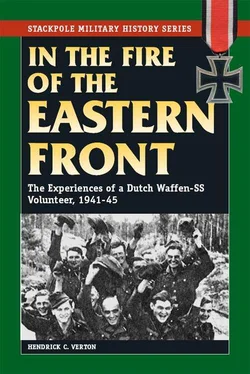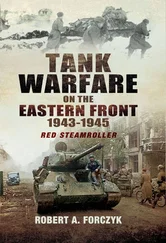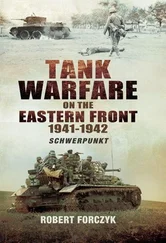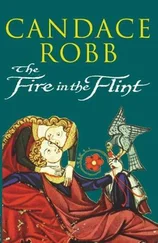For me, it was at that time important not only to have a full stomach and a roof over my head, it was a daily battle to stay incognito and not to become one of those POWs. There were however always checkpoints and inspections of papers. It was all too easy to be noticed at these inspections and arrested. Between 1945 and as late as 1950, 122,671 Germans were to become prisoners of war. 43,000 of those died. 776 were sentenced to death, and that happened in peacetime.
In Finsterwald the same situation slowly evolved as in Breslau. The longer that I stayed, the more well-known I became, and that I had been a Dutch volunteer for the German Waffen SS. What if someone were careless with this information? This fear was always breathing down my neck and so I moved away. I moved very near to the Laska family once more. But I was to spend the next few weeks and months in the northern part of the East zone and not in the suburbs of Leipzig.
The eldest sister of my fallen friend, Robert Reilingh, had been married to a German soldier, an officer who fell in Russia. Now being widowed, Eva Gahrmann lived in Greifswald with her parents-in-law. A circle of very nice people, her friends and family members welcomed me with open arms. Greifswald lay on the coast and had surrendered to the Russians. It had remained undamaged, possessing the oldest University in the whole of Germany, dating from 1465. It lay in a romantic setting with old gabled houses. Extreme want or need was not to be seen here, for the Gahrmann family, just like that of Inge, were the owners of a large furniture and textile business. They were respected in the vicinity. They had contacts with the farmers in the country, the academics in the University, and with the chemists in the city, who possessed alcohol, for the ‘black’ market. Yes, I was also the executive here, in Greifswald, in the wheeling and dealing business. I undertook the long and uncomfortable train journey from Saxony to Mecklenburg.
I had, in both the pre-war and post-war years, experienced from many people evidence of unity, and of help and support. That included the medical care of a doctor upon falling foul of malaria. It was during my second visit to Brigitte in May 1947. I detoured on the way back, calling in on friends of the Laskas and from a very short visit, I had to stay for five weeks. I was cared for by those very dear Laska friends as a refugee, and also cared for free of charge, by their doctor, Dr Schuler. The summer months of 1946 had wandered into the summer months of 1947 in the East zone. I spent wonderful days on Germany’s largest island of Rügen, in the very large sum-merhouse belonging to the Gahrmanns. We arrived with more than enough ‘black’ market provisions, with friends who had journeyed with us on the train, over Stralsund and the Sound of Rügen, to Germany’s largest island.
It was paradise! It was a paradise of flat land, steep cliffs, calm and raw angry seas, woods of beeches hiding moorland and labyrinths of reed. The long, long sandy beaches I remember were empty of people, and were guarded, as we bathed, by towering chalk cliffs. We never saw any Russian military. Tourists? There were none. I thought of Rügen as sitting under a large glass dome, which resisted the disturbance of the occupying government. But even there in the north there were moments that sickened and saddened, such I was to see in Bad Kleinen in the railway station.
There was a column of German prisoners standing on the platform and after counting, it was found that they were one man short. One had obviously escaped. Without much ado, one of the Russian guards snatched one of the other travellers and forced him into line with the other prisoners. Now the numbers were correct! The shocked man made no protest and neither did the passers-by who witnessed what had happened. They remained shocked and ‘mum’. I protested to a German railway policeman who did not want to know. He didn’t want any trouble with the army and was annoyed with me that I had the privilege of travelling the way I did, as a disabled person, i.e. war-wounded, so he took away my permit.
I had lived for a whole year in Silesia under the yoke of Polish Communism, and nearly a year under Russian Communism in the Eastern zone. But had I a future? There would never be one for me here. My intuition was at work. More than ever, I feared for my safety with each day that went by. My intuition had never let me down. I was therefore more than overjoyed when receiving a telegram from the West that was to end my ‘guest status’ under that ‘red flag’ flying in the wind.
CHAPTER 21
In the Western Zone
Ireceived the news from Brigitte that my brother Evert had suddenly appeared in Detmold, having escaped from a forced-labour camp in a Dutch coal mine in Limberg. He had gone straight away to Brigitte. The case that was to be made against him, as a Waffen SS officer, was something that he was not going to wait for. The ‘special courts’ of hate, revenge and reprisals was not for him. With help from the civilian coal-workers, he managed to escape, without wire-cutters or a ladder. He was shown the way over the darkened border by Dutch smugglers in return for some ‘hot’ wares, i.e. cigarettes.
Now my decision was to be made, and had to be final. Brigitte was in the West, Evert was in the West, and I? The friends I had on this side of the Elbe were dear to me, but Brigitte and Evert meant far more. My decision was without any doubts. With a determination that was stronger than ever, I knew that it was time and that I must leave. My landlady in Taucha had only the minimum of trouble with my change of abode, for she did not inform the authorities of my leaving or of my true identity. They now knew who I was. Her penalty was the refusal to give her a new coal oven. My instincts had been 100% correct. Had I stayed I would had have been arrested in no time at all. So I escaped that forced-labour camp. I had had a piece of good luck, and left that worker/farmer’s ‘paradise’.
Without map or compass, I arrived in the West, in Detmold. I cannot describe my joy at seeing Evert and Brigitte. I had not seen Evert for several years. He had quarters with a Dutch couple, Mr and Mrs Snuverink. Their two sons, both in the Waffen SS, were both reported missing with our troops in Russia. So they were in the same situation as we, for they feared reprisals against themselves in the absence of their sons. They had left everything that they had owned and escaped to Detmold. Evert and I were now welcomed with open arms and became ‘provisional sons’ for them. We both owed much to this couple. Mr Snuverink had had a large and successful building firm, and it was to be assumed that he would again, one day.
Most important for Evert, was for him to have a new identity, without it he would have no ration card. So as I had more experience in this, I presented myself before the authorities as Evert. He was three years older but this was not noticed. I had explained that my papers were lost upon fleeing from the Russians, but this was not acceptable. “No, Sir, you could be Hitler’s son for all we know!” They were friendly, but a solicitor was more helpful. We found one who believed the story and for a fee gave me the needed documents, attested and sealed. I presented them to an Eton schoolboy-type British officer, who smelled of leather and whisky. “Documents, all correct, goodbye!” Evert and the Snuverinks waited for me with impatience. He had never trusted himself to go out on the street before I returned with his identification. But now he could, with papers declaring that he had been born in Finsterwald and had fled to the West. And I? I did not know who I was anymore, for I was now my brother!
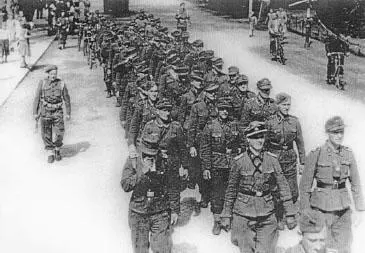
Untersturmführer Evert Verton (front centre) marches with his company into Canadian captivity, Netherlands 1945. The soldiers belonged to 34th SS Division ‘Landstorm Nederland’.
In Holland, Evert’s escape and my non-return would mean our deaths, if we were to go back, for there was now ‘ethnic-cleansing’ at home. Families of those who had kept Communism away from their door were penalised. ‘Ethnic-cleansing of traitors’ was also happening in Western Europe. The families were persecuted and mobbed. I find it difficult to write about the behaviour of my own people, about their crimes, that were similar to those of the Soviets in east Germany, and which I would never have believed of them.
Читать дальше
